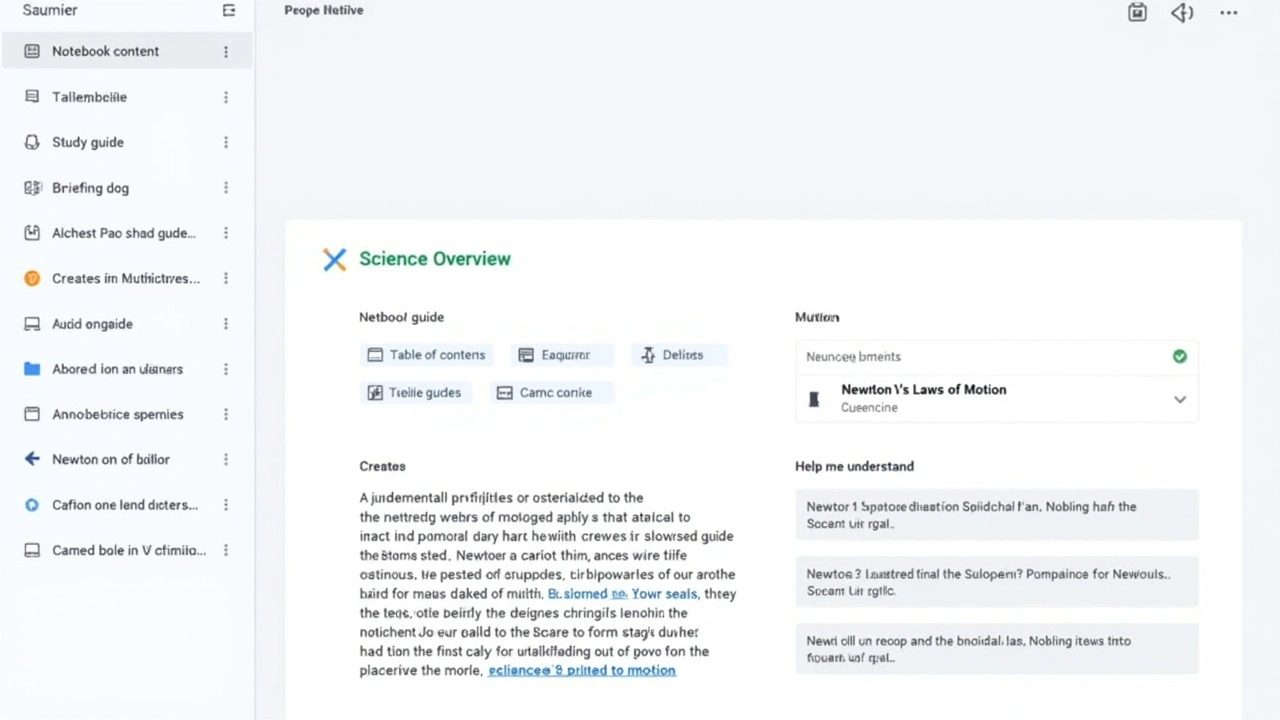The Evolving Landscape of AI-Driven Education Platforms
In the ever-evolving world of technology, Google has been at the forefront of utilizing AI to enhance educational processes. The technological giant's latest stride is an upgraded version of the NotebookLM platform. Originally designed to assist learners by creating AI-generated podcasts, the tool has recently been expanded with a suite of new features aimed at boosting its utility and function. These updates not only allow for the creation of more personalized content but also position NotebookLM as a significant player in the intersection of AI and education.
Understanding Google’s NotebookLM and Its New Features
NotebookLM, first unveiled at Google I/O in May, caught the attention of AI enthusiasts worldwide when it introduced a feature called "Audio Overviews" in September. This feature allows users to transform uploaded material into concise and informative audio content, effectively creating customized podcasts. The unique touch lies in NotebookLM's capability to simplify the process of distilling intricate information. By breaking it down into digestible formats, it opens doors for users to engage with educational content without the barriers typically associated with complex topics.
Now, with the recent upgrades, Google is offering users deeper control over how their content is processed and delivered. By clicking "Customize" next to the "Generate" button, instructors or content creators can tailor the conversation that the AI generates. This is not limited to emphasizing specific subjects, but also extends to adjusting the expertise level to ensure the final output is appropriate for the intended audience. Whether it’s making the content more beginner-friendly or challenging a more advanced audience, the flexibility is a much-welcomed feature.
Innovative Functionalities: Multitasking and Querying on the Go
Another noteworthy enhancement is the ability to continue refining one's Notebook while listening to the Audio Overview in the background. This multitasking ability represents a significant leap in convenience and efficiency. Users can now engage interactively with the content by querying their sources, obtaining citations, and delving into relevant quotes without having to hit pause. This ensures that the educational process remains uninterrupted, allowing a seamless blend of listening and doing.
The inquiries users can make are processed in real-time, an innovation that potentially revolutionizes the way information is consumed. No longer do users need to passively absorb content; they can actively engage, which can enhance comprehension and retention. This feature turns static consumption into an interactive dialogue, benefiting not just students, but anyone interested in deepening their understanding of a particular topic.
Meeting Business Needs: Introducing NotebookLM Business
Further extending its reach, Google has introduced NotebookLM Business, a paid version that incorporates premium features. Aimed at institutions, businesses, and organizations, this version suggests a clear intent by Google to tap into the professional and educational markets. By catering to larger-scale needs, Google is providing tools that support collaborative learning and team-based knowledge dissemination.
NotebookLM Business is expected to offer advanced functionalities that are not accessible in the standard version. While specific features of this premium version were not detailed in the announcement, they are anticipated to facilitate better collaboration, data management, and possibly deeper analytical insights. This aligns with the broader trend of technology companies developing AI tools that cater specifically to business environments.
Privacy Considerations and User Trust
An area that continues to be of utmost importance is the topic of privacy. Google has assured users that NotebookLM does not utilize their data for AI model training, a commitment that underscores the company’s dedication to user privacy and data protection. In an age where privacy concerns are at an all-time high, reassuring users of strict privacy measures is vital for sustained trust in the platform.
This promise of privacy, coupled with its numerous functionalities, makes NotebookLM an attractive tool for not just individual learners but also organizations with rigid confidentiality requirements. Google’s transparency about how user data is handled could be a major factor influencing the adoption rate of NotebookLM in various sectors.
The Future of NotebookLM and Its Potential Impact
As technology progresses, the demand for effective AI-driven educational platforms is expected to grow. Google's NotebookLM, with its constant stream of updates and focus on user experience, positions itself as a key contributor to this sector. Its unique combination of user-driven customization, real-time querying, and the introduction of a business-focused iteration all suggest a future where AI plays an even more integral role in education.
With these upgrades, Google envisions a tool that not only caters to personal learning journeys but also serves as a collaborative hub for educational professionals. Businesses and institutions motivated by enhancing learning experiences and knowledge management may find great value in NotebookLM. As educators across the globe seek to integrate cutting-edge technology into their curricula, Google's AI-powered solution might very well become an indispensable part of their toolkit.
The road ahead for Google's NotebookLM seems promising. By continuing to innovate and listen to user feedback, the potential to further revolutionize not only educational processes but also how we interact with AI in general, is immense. What remains to be seen is how creative and resourceful users will become in leveraging these tools to nurture learning and knowledge sharing in a technology-driven world.


Author
Ra'eesa Moosa
I am a journalist with a keen interest in covering the intricate details of daily events across Africa. My work focuses on delivering accurate and insightful news reports. Each day, I strive to bring light to the stories that shape our continent's narrative. My passion for digging deeper into issues helps in crafting stories that not only inform but also provoke thought.